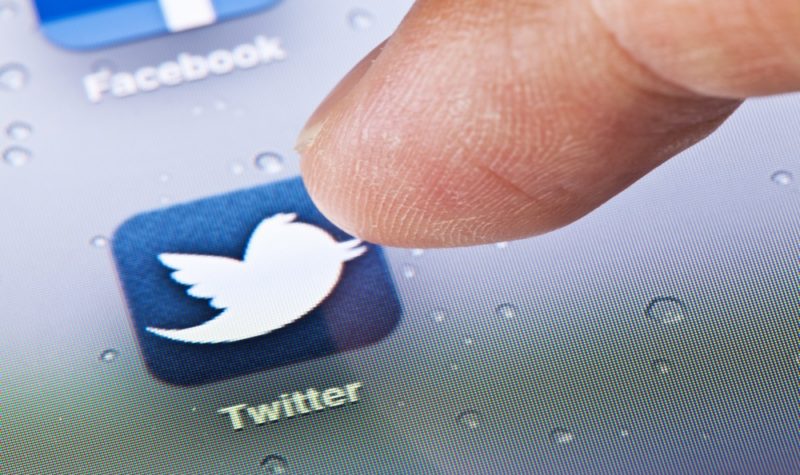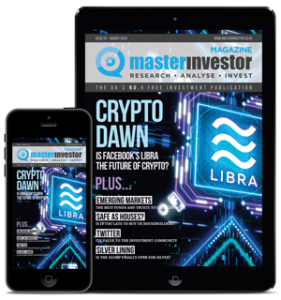Can Twitter make you a better investor?

For all its faults, Twitter may be the most useful form of news gathering and information sharing to date.
“The fact is that fraudulent content, and stolen content, are rife on Facebook, and the company doesn’t really mind, because it isn’t in its interest to mind. Much of the video content on the site is stolen from the people who created it. An illuminating YouTube video from Kurzgesagt, a German outfit that makes high-quality short explanatory films, notes that in 2015, 725 of Facebook’s top one thousand most viewed videos were stolen. This is another area where Facebook’s interests contradict society’s. We may collectively have an interest in sustaining creative and imaginative work in many different forms and on many platforms. Facebook doesn’t. It has two priorities, as Martínez explains in Chaos Monkeys: growth and monetisation. It simply doesn’t care where the content comes from. It is only now starting to care about the perception that much of the content is fraudulent, because if that perception were to become general, it might affect the amount of trust and therefore the amount of time people give to the site.
“Zuckerberg himself has spoken up on this issue, in a Facebook post addressing the question of ‘Facebook and the election’ After a certain amount of boilerplate bulls**t (‘Our goal is to give every person a voice. We believe deeply in people’), he gets to the nub of it. ‘Of all the content on Facebook, more than 99 per cent of what people see is authentic. Only a very small amount is fake news and hoaxes.’ More than one Facebook user pointed out that in their own news feed, Zuckerberg’s post about authenticity ran next to fake news. In one case, the fake story pretended to be from the TV sports channel ESPN. When it was clicked on, it took users to an ad selling a diet supplement. As the writer Doc Searls pointed out, it’s a double fraud, ‘outright lies from a forged source’, which is quite something to have right slap next to the head of Facebook boasting about the absence of fraud. Evan Williams, co-founder of Twitter and founder of the long-read specialist Medium, found the same post by Zuckerberg next to a different fake ESPN story and another piece of fake news purporting to be from CNN, announcing that Congress had disqualified Trump from office. When clicked- through, that turned out to be from a company offering a 12-week programme to strengthen toes… (That’s right: strengthen toes.) Still, we now know that Zuck believes in people. That’s the main thing.”
– Robert Lanchester in the London Review of Books, reviewing Chaos Monkeysby Antonio García Martínez, August 2017
I’m not on Facebook. But I do use Twitter. Here’s why.
Roughly a year ago, whilst surfing Twitter on a Saturday night, I came across a tweet from an American user of the service −the topic being Winston Churchill. The post amounted to amazement at Churchill’s consumption of alcohol. Deploying my conventional ‘fire, ready, aim’ approach to social- media interaction, I immediately waded into the ‘debate’. Yes, I responded, somewhat defensively, but in his defence, he saved the country in a battle for national survival when Britain was more or less alone against the Nazi threat. The US correspondent responded, diplomatically, that he wasn’t criticising Churchill – merely citing a reference to his drinking habits that features in a monumental biography of our greatest wartime leader, namely The Last Lion, by authors William Manchester and Paul Reid.
| First seen in Master Investor Magazine
Never miss an issue of Master Investor Magazine – sign-up now for free! |
I went and bought the book – which is actually three volumes, totalling something like 2,000 pages in all.
A year later, having finally devoured The Last Lion, I went back to my US correspondent, on Twitter, to thank him for having introduced me to the book. My praise was fulsome, because it’s a magnificent biography about one of our most impressive national heroes. It is, in point of fact, the most enjoyable political biography I have ever read.
Within a few minutes, I had a response: “I am glad you enjoyed the book.” This tweet was from Paul Reid, the co-author.
So here is a social network that can a) introduce you, serendipitously, to pieces of work and culture that you might never otherwise encounter, and that can also b) introduce you to the very authors of those works and facilitate ‘real-world’ relationships with them.
That may not sound like much to you, but it impressed the hell out of me.
For all the shouting and hate-fuelled rage and mudslinging that undeniably engulfs social media, there are still small voices of calm amidst the noise. Not only that, but the nature of the network enables relationships to take place in the real, offline world, whenever people of similar mindsets wish to engage at a deeper level. So I now find that I spend increasing amounts of time meeting Twitter contacts in a social setting – eg in the pub – rather than just online.
Another powerful value-add of Twitter is its ability to deliver edgy, independent, but most importantly honest discussion and analysis of newsworthy (and financial market-related) developments, of a type that the mainstream media are simply no longer capable of delivering.
And, being a broad church where you can choose your own correspondents, Twitter is, perversely, both wildly partial and completely objective, depending on how you choose to curate your feed.
The early days of the World Wide Web prompted much discussion about the possibility of a ‘Daily You’: the creation of an online newspaper, the content of which was entirely malleable at the hands of the consumer of online content. The ‘Daily You’ never quite came into being. But Twitter is surely the closest manifestation of it that we have yet managed to obtain. And whether you love or hate President Trump, we must all surely acknowledge that it was Twitter that won him the presidency: a medium that, perhaps uniquely, enables those with something to say to bypass all forms of traditional media.
Here is another reason why I love Twitter: Naval Ravikant. Naval (@naval) is a Silicon Valley angel investor who has become the very definition of a productive member of the Twitter community. Note, too, that he has ignored invitations to be ’blue-ticked’ by Twitter (ie verified as authentic and of public interest) – because he doesn’t believe that the platform should take any editorial sides.
Here are some business and investment-related tweets from Naval that may go some way towards showing you why I find his insights so valuable (the pithiness that the Twitter format requires undoubtedly helps):
- Seek wealth, not money or status. Wealth is having assets that earn while you sleep. Money is how we transfer time and wealth. Status is your place in the social hierarchy.
- Ignore people playing status games. They gain status by attacking people playing wealth creation games.
- Pick an industry where you can play long term games with long term people.
- The Internet has massively broadened the possible space of careers. Most people haven’t figured this out yet. [The comic and financial writer Dominic Frisby advocates ensuring that your children avoid the risk of career obsolescence by learning how to code, and he’s probably right.]
- Play iterated games. All the returns in life, whether in wealth, relationships, or knowledge, come from compound interest.
- Code and media are permissionless leverage. They’re the leverage behind the newly rich. You can create software and media that works for you while you sleep.
- An army of robots is freely available – it’s just packed in data centres for heat and space efficiency. Use it.
- If you can’t code, write books and blogs, record videos and podcasts.
- Study microeconomics, game theory, psychology, persuasion, ethics, mathematics, and computers.
- When you’re finally wealthy, you’ll realize that it wasn’t what you were seeking in the first place. But that’s for another day.
Faced with challenges like Brexit and Trump – and of course social media itself – the mainstream media is rapidly fragmenting towards obsolescence, and shedding relevance and usefulness and audience by the day. But this is not true of Twitter.

Comments (0)